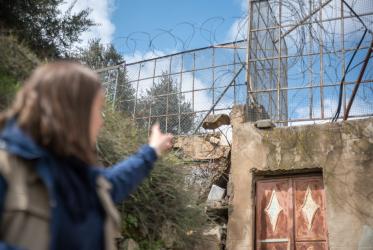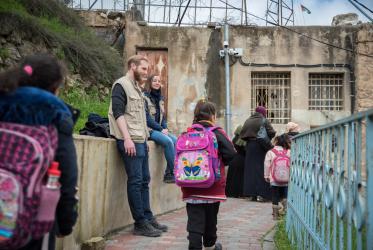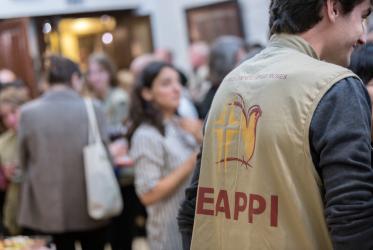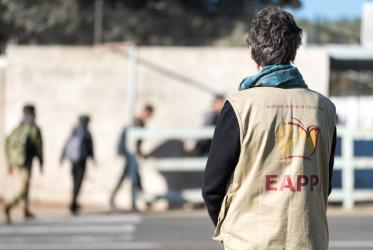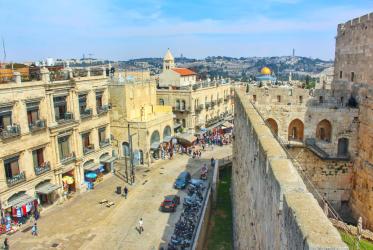Although the Israeli authorities declared Wadi Qana as a nature reserve as far back as 1983, the decision to turn it into an Israeli leisure and recreation area was only taken in 2006.
This did not fail to impact Palestinian landowners. who are not allowed to dig new wells to water the fields or to repair existing facilities, whereas the Israeli settlements on the hilltops get their water from deep wells on the valley floor, with water pumped uphill through thick pipes.
One consequence is that the stream that has carved its way into the valley has dried up in its upper reaches and its catchment area, with only a trickle left downstream. Withered trees can be seen here and there in the almond and orange groves. However, the tough olive trees can withstand the lack of water.
This land has not been profitable for farming for a long time now. One of Rizeq’s neighbours, who has an orange grove on the opposite side of the valley, explains: “What I can earn from a month’s hard work on my land, I can earn in a week as a day labourer in an Israeli factory.”
Nevertheless, it is important to keep farming the land, because the Israeli authorities are resorting to an old legal principle from the Ottoman period that allows the State to expropriate land that has not been farmed for three years in a row.
We visit the valley again on a Friday, the “Muslim Sunday”, a free day which the inhabitants to tend to their citrus and olive groves. We lend Rizeq’s neighbour a hand. We shake the fruit from the branches, gather up the oranges on the ground and pour them into big sacks. The fruit is then carried on donkey’s back from the field on the valley floor to the road, where they are sold directly to day trippers and neighbours passing by.
The valley fills up around midday. More and more families, mainly Palestinian, come to spend the afternoon in the warm spring sunshine in the meadows and on the valley floor. We also see a handful of settlers who use Wadi Qana as their personal leisure and outdoor area.
After the work is done, we also take a break and enjoy the tasty flatbread stuffed with herbs and tomatoes that an orange grower’s wife has baked for us on a small field oven. Two settlers come up with their off-road outdoor buggy, a sort of covered quad, driving across country through our rural idyll without showing much respect for the farmland. They buy a flatbread that they then proceed to eat sitting in their vehicle.
I get the impression of a meeting of two different cultures, two different ways of using the land. The long-established farming families, who prize the farm for its agricultural value which they feel is threatened, contrasted with the settlers from the surrounding hilltops, for whom the valley has become a leisure park.
The afternoon comes to an end with coffee and lots of cigarettes, conversations and jokes. Yet the atmosphere is marked by a certain nostalgia at the thought that even here, in this seemingly peaceful place, the inhabitants are so affected by the occupation.
See also part 1 of our Ecumenical Accompanier’s impressions from Wadi Qana, published last week: Occupation's impact on a peaceful land.


